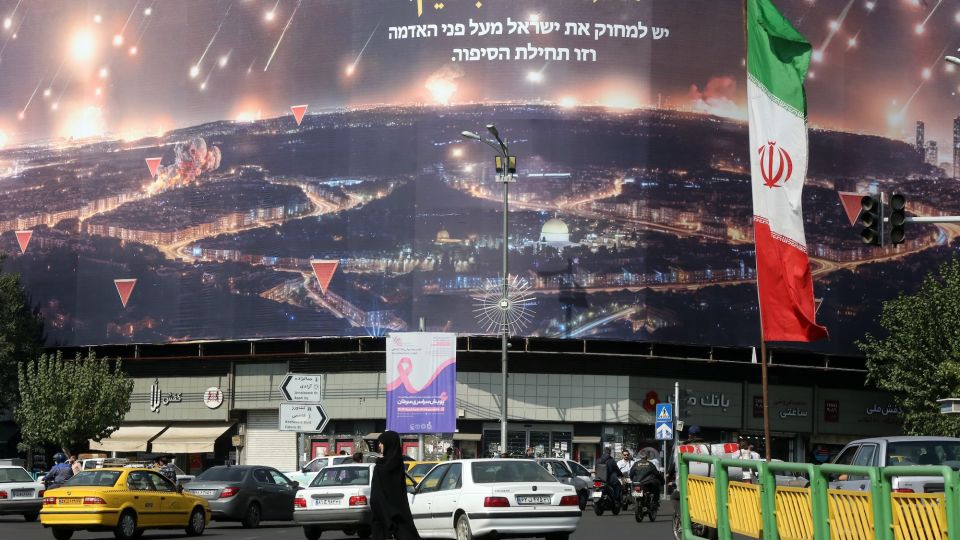Iran is currently experiencing heightened anxiety regarding potential Israeli military responses following a missile attack it executed earlier this month. The Iranian government is actively pursuing diplomatic channels within the Middle East to communicate with surrounding nations, seeking assistance to both mitigate the scale of any Israeli retaliation and ensure that Tehran’s critical assets, particularly nuclear sites and oil facilities, remain secure. This unease is compounded by concerns over whether the United States is capable of dissuading Israel from targeting these sites. Iran’s apprehension is intensified by the significant reduction in the operational capabilities of Hezbollah, its most important proxy militia, due to recent aggressive Israeli military actions. This fragile balance exacerbates Tehran’s fears about a broader conflict emerging from ongoing tensions between Iran and Israel.
In response to these developments, the United States has been closely coordinating with Israel, providing insights into its anticipated military responses to Iran’s aggression. President Joe Biden recently articulated a position of restraint during a conversation with Israeli Prime Minister Benjamin Netanyahu, emphasizing that any retaliatory strikes should be “proportional.” The apprehension extends beyond Iran and Israel; Gulf allies like the United Arab Emirates, Bahrain, and Qatar have expressed concerns regarding the economic and environmental repercussions of potential Israeli strikes on Iranian oil infrastructure. This deep-rooted anxiety about a larger escalation into a regional conflict that could involve the U.S. is palpable in diplomatic circles, highlighting the precarious situation that has emerged from the tit-for-tat attacks, underscored by Israel’s disregard for U.S. calls for restraint.
The U.S. has grown increasingly wary of Israel’s independence in military operations, as demonstrated by recent actions taken by Israel without prior consultation. This includes uncoordinated attacks that targeted Hezbollah capabilities and a lack of transparency regarding the Israeli security cabinet’s strategic discussions. While U.S.-Israeli positions seem to be converging somewhat, a lingering uncertainty persists regarding Israel’s intentions toward its longstanding military plans against Iran’s nuclear infrastructure. Over the years, Israel has conducted extensive assessments and exercises aimed at neutralizing Iran’s nuclear advancements, including previous campaigns to assassinate key Iranian nuclear scientists and cyber operations like the notorious Stuxnet attack.
Israeli Defense Minister Yoav Gallant has issued stern warnings regarding the strength and surprise of Israel’s potential military response, which adds another layer of tension to the already volatile situation. The Gulf states, keen on avoiding entanglement in this conflict, have communicated a mutual understanding with the U.S. and Iran about their airspace not being available to Israel in a potential strike on Iranian targets. Jordan has echoed similar sentiments, emphasizing a stance of protective sovereignty during this crisis.
Despite various backchannel communications, the U.S. is cautious about predicting Iran’s response to any Israeli military action. Iranian officials, including Foreign Minister Abbas Araghchi, argue that the desire for war primarily rests with Netanyahu, suggesting that Iran does not seek widespread conflict but rather aims to avoid it. Diplomatic maneuvers underscore the uncertainty about how Iran will react if provoked further, and internal disagreements among Iranian leadership on strategic responses complicate matters further. Tehran is keen on leveraging relationships with regional powers, notably Saudi Arabia, in an effort to navigate the escalating tensions.
As the international community watches closely, Israel prepares for a period of reflection due to the observance of Yom Kippur, halting its military operations temporarily in observance of this significant Jewish holiday. All civilian operations within Israel, including public transport and commercial establishments, will come to a complete halt, leaving the potential for military action on hold until after the holiday. This pause provides a brief window of calm amid an otherwise fraught geopolitical landscape, as stakeholders await Israel’s next move in the face of escalating tensions with Iran.

